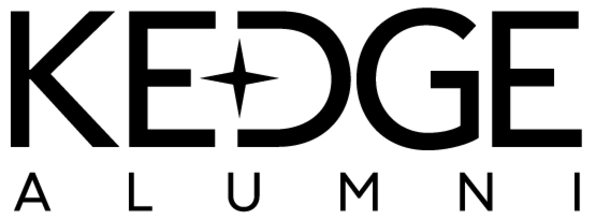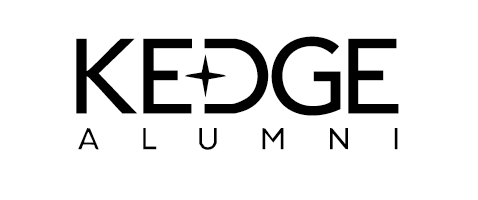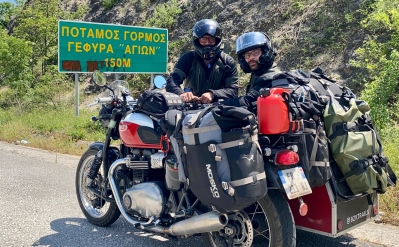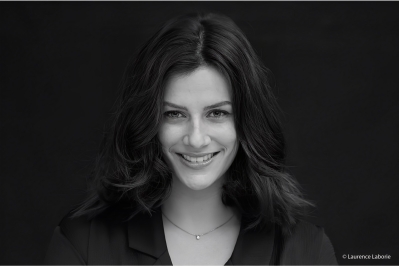News
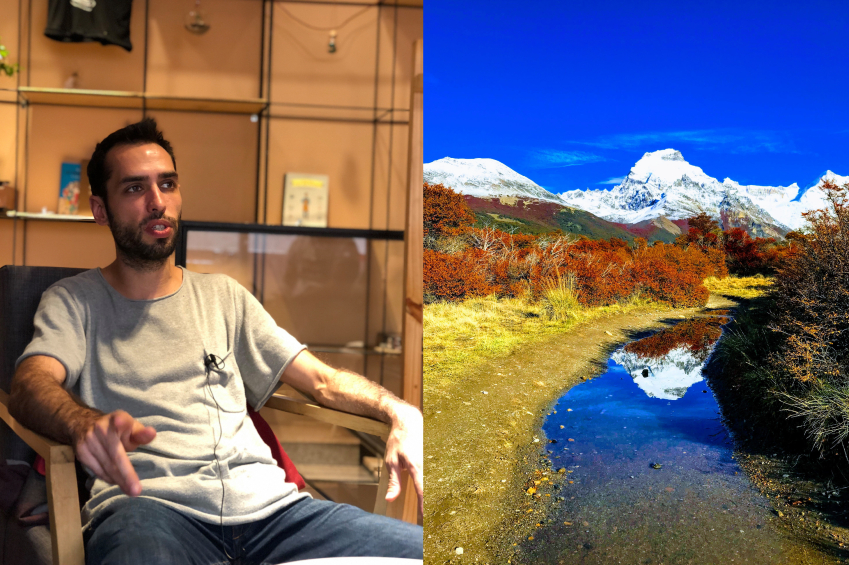
Meet Florian, a KEDGE Graduate Living in Buenos Aires
The five students from the “KEDGE Alumni Success” pro-act are currently in South America, meeting with our expatriate alumni.
Can you tell us about your academic background and your studies at KEDGE? In what context did you study there?
I studied at KEDGE Marseille without going through the preparatory classes. I enrolled in a program that allowed me to do two internships and spend two years abroad to earn my degree. I chose the United States and went to UNCW in North Carolina, where I specialized in Marketing. I earned a double Bachelor’s degree in four years.
I completed two internships—one in Madrid in the pharmaceutical sector, and another in Atlanta as an Export Manager for a company selling aluminum, working in pure B2B. After that, I did a one-year apprenticeship in Geomarketing, which involves Big Data and marketing variables, at UPEC in Paris.
Why did you decide to move to Buenos Aires? Was it a personal desire or an opportunity you seized?
A bit of both. I had friends working there, and after five years working in Paris as a Product Manager in home automation (controlling electronic devices via your phone), I was ready for a new personal challenge.
I arrived in Buenos Aires without a job but with enough savings to live comfortably here. I traveled around South America for six months before settling in Buenos Aires. I thought finding a job would be easy, but it turned out to be much harder than expected. In France, graduating from a good school helps you land a good job quickly—but abroad, it’s not always that simple.
Eventually, I found projects working as a Marketing Strategy Consultant for a year. Then I thought, “I’ve always wanted to start my own business—now’s the time.” I was working from a co-working space and found the concept inspiring, so I launched my own co-working space in Buenos Aires, in the Palermo neighborhood: Café Flor (https://www.cefeflor.com.ar).
What differences do you notice between working in Argentina and in France?
Argentinians generally work long hours—around 8 hours a day. After work, they go out, exercise, and tend to sleep less, so their work rhythm is more relaxed. The work environment is very friendly—there’s always someone to share a mate and chat with.
I only have one year of experience in an Argentine company, and 50% of the team was international, so it’s hard to give a definitive answer. Plus, my current business partner is French, so we naturally bring French values and work habits into our company.
What I can say is that many Argentinians juggle multiple jobs. They often study for many years—sometimes until their 40s—because lifelong learning is part of their culture. Their academic paths are very different from ours. Instead of doing five years of business school and going straight into the field, they might study five years of business, then five years of psychology, and then five years of political science. So their work rhythm is different—they often study in the evenings.
In the end, they’re very flexible, and we see that with our employees. It’s hard to expect someone to work from 9 to 6 every day because they have many other activities. But that also makes them very versatile.
What are your plans for the future? Where do you see yourself in 5 or 10 years?
This feels worse than a job interview! (laughs) Normally, a good entrepreneur should give you a very precise answer since it’s part of their business plan (laughs).
But seriously, let me explain how things work in our sector.
We want—or rather, we’re trying—to create an ideal workspace or study space for people who truly need it. These are often people who travel around the world. There’s a new way of traveling today: people go abroad for six months and work while they travel. It’s not a three-week vacation anymore. They stop paying rent at home and instead pay for hotels, Airbnbs, or hostels in other countries. They enjoy the freedom to move around and just work from a laptop. That’s the future, and some countries are way ahead of Europe in this regard, like the U.S. or Australia.
All these people need reliable Wi-Fi, and even here in Buenos Aires, the capital, the network isn’t available everywhere. That’s what we offer today, and in 5 to 10 years, we’ll see how things evolve. But if more and more people start working as digital nomads, it will give even more meaning to Café Flor (his co-working space).
Like any project, the market may change, we might realize the offer isn’t right anymore, or it has completely shifted—especially given Argentina’s economic instability. If an opportunity to sell arises, why not? But it would be surprising, because our concept is well-developed and easily replicable. It’s the brand you build around your café that matters. Selling your company is common. Personally, I want to live out my project to the fullest.
Ultimately, making 5- or 10-year forecasts is always tricky for us. But we do aspire to grow the project. So no plans to return to France for now—hopefully my parents won’t read this interview! (laughs)
How did KEDGE help you achieve your goals?
KEDGE allowed me to live in three different countries in just four years, including two years in the U.S. at a university that’s originally ten times more expensive than KEDGE—something I couldn’t have afforded otherwise. It gave me all those opportunities. Of course, it’s important to be resourceful and find your own internships and build your own network.
Today, I’m discovering the importance of the alumni network—not just among Kedgers, but also with graduates from other business schools. I organize inter-school meetups here in Buenos Aires through the local alumni chapter I lead. As a student, you don’t realize it right away, but later, when you meet people who’ve worked in all kinds of fields—even on the other side of the world—it’s incredibly energizing. You learn so much. Having gone to a business school really creates strong connections.
Did you have any apprehensions before leaving?
Of course—leaving your family, your life, your job, your home to arrive somewhere where you have nothing is daunting. It forces you out of your comfort zone. I was actually more nervous about starting my business than about moving to another country. I had the advantage of speaking a bit of Spanish and having traveled before.
What advice would you give to a recent KEDGE graduate who’s considering starting their career in Latin America?
Like your current project (KAS), you need to do something a little different—something that stands out.
Life here is beautiful, the conditions are great, but you also have to be willing to hustle a bit, take on small jobs to make ends meet. Don’t be afraid to start at the bottom and give it your all to move up. There’s no one-size-fits-all advice—everyone lives their own way. But through what I do today, I always advocate for freelance work and knowledge. Nowadays, everything can be learned, and the more you know, the more you can monetize your skills.
That way, you can be self-employed, take initiative, move around, and live more freely. Business school teaches you a lot, but when you graduate, there’s still so much more to learn.
Which sectors are thriving in this country, in your opinion? Are there opportunities for young graduates?
Tourism is becoming increasingly attractive given the current currency situation. You can enjoy a two-star restaurant experience here for €30—just like in Paris. Life is more affordable, and luxury isn’t reserved for the elite. Plus, transportation is improving. All of this will definitely boost tourism.
What have you found here that you wouldn’t find in France?
Today, I have a lifestyle balance that would have been very different in France—socially and professionally—because I’ve never started a business there, and maybe I wouldn’t have been able to. I’m not saying it would have been harder in France; there are barriers and obstacles everywhere when you start a company.
In terms of lifestyle, it’s different. I’m 30 and single, and many people here are in the same situation. In Paris, it’s different—people my age are married, starting families, have been in the same company for 10 years, and are settling down comfortably. It’s a completely different way of life, and I couldn’t have that here—but I feel much better this way.
What is your role as an Alumni? You graduated from KEDGE and are now part of our global network.
I’m actually the one who initiated the creation of the local alumni chapter here, in collaboration with Brigitte Van Roy and Robin Larroze.
It’s a great department. For me, the idea was to meet other people, talk about my café, and potentially gain new clients. We organized a first afterwork, then a second, and we’re planning to continue because these exchanges help enrich everyone’s projects—whether they’re students like you or fellow alumni.
My role is to be the connector between all these people and their projects.
